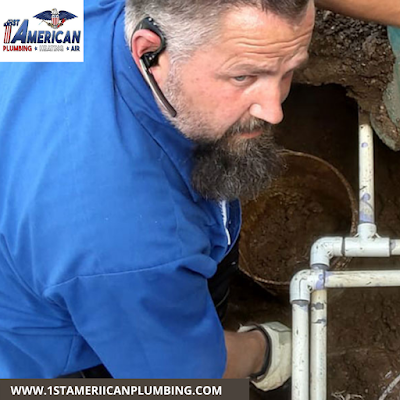Emergency HVAC Repair: What to Do When Your System Fails
While a few HVAC troubles can require an ordinary assessment by professional plumbers, others require immediate attention.
Guide to help you navigate an emergency HVAC situation
- Identify the Emergency
Not all HVAC problems need an emergency check-up. Before calling for assistance, remember the severity of the problem. Here are some symptoms that imply a pressing want for an HVAC technician:
- No heating or cooling - This is a clear sign that your system has closed down; it is vital to address this directly, particularly in intense temperatures.
- Unusual noises - Loud grinding, banging, or screeching sounds from your HVAC unit are a red flag. These noises may suggest failing components that need immediate restoration.
- Strange odors - A burning odor from your HVAC system can mean electric issues or overheating of components. This requires instantaneous analysis by professionals to prevent possible dangers.
- Water leaks - Leaks near your HVAC unit might imply blockages, drain pan troubles, or refrigerant leaks. These problems can damage your home and require prompt expert intervention.
- Smoke or flames - If you notice smoke or flames coming from your HVAC unit, turn it off immediately and evacuate the place. Contact the fire department and a qualified HVAC technician to assess the harm.
- Taking Action
Once you have recognized an emergency, follow these steps -
- Turn off the system - Locate the principal power switch or breaker in your HVAC unit and turn it off; this prevents any additional harm and guarantees safety.
- Find a reliable HVAC provider company - Look for companies providing 24/7 emergency HVAC repair services. Research online reviews, ask for options from family or friends, or check with your local utility company.
- Prepare for the technician's arrival - If possible, gather any records regarding your HVAC system, which may include its version, date of manufacture, and any current maintenance records. This will help the technician diagnose the issue promptly.
- Explain the issue clearly - When contacting the HVAC repair team, clearly explain the nature of the emergency and the signs and symptoms you are experiencing. This facilitates them to prioritize your request and determine the urgency.
- Preventative Measures
While emergencies show up, regular maintenance can substantially reduce the hazard of an HVAC machine breakdown. Here are some preventative measures you can take -
- Schedule annual check-ups –The annual inspection and cleaning by a qualified technician allows them to assess the issues in advance in their nascent stage and prevent any critical problems later on.
- Change air filters regularly - Dirty filters restrict airflow and reduce efficiency, adding strain to the machine. Replace air filters as per the manufacturer's recommendations, typically every 1-3 months.
- Keep the area around your HVAC unit clean - Debris around your HVAC unit can hinder airflow and impact performance.
Be Prepared for any HVAC Emergencies
By following these guidelines, you may handle an HVAC emergency effectively and minimize damage. Remember, a properly maintained HVAC system guarantees its longevity and improves electricity efficiency to save high electricity bills. You can also trust the HVAC Services in Midvale expertise of the 1st American Plumbing Heating and Air team to evaluate the issues and do the repairs before matters get out of hand.
To schedule an appointment for your house or office HVAC unit in Midvale, Visit our website.
The Article "Seasonal Water Damage Risks and How to Mitigate Them" Was Originally Posted Here.




Comments
Post a Comment